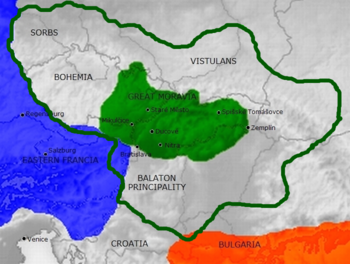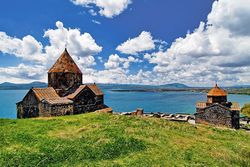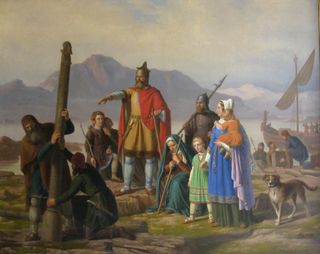874
► | قرن 8 | << قرن 9 >> | قرن 10 | ◄
► | عقد 840 | عقد 850 | عقد 860 | << عقد 870 >> | عقد 880 | عقد 890 | عقد 900 | ◄
► | ► | 869 | 870 | 871 | 872 | 873 | << 874 >> | 875 | 876 | 877 | 878 | 879 | ◄ | ◄
تحويل 1-1-874م الى هجري (وصلة خارجية) | تحويل 31-12-874م الى هجري (وصلة خارجية) | ابحث في الموسوعة عن مواضيع متعلقة بسنة 874
| ألفية: | الألفية 1 |
|---|---|
| قرون: | القرن 8 – القرن 9 – القرن 10 |
| عقود: | عقد 840 عقد 850 عقد 860 – عقد 870 – عقد 880 عقد 890 عقد 900 |
| سنين: | 871 872 873 – 874 – 875 876 877 |
| 874 حسب الموضوع | |
| السياسة | |
| زعماء الدول – الدول ذات السيادة | |
| تصنيفات المواليد والوفيات | |
| المواليد – الوفيات | |
| تصنيفات التأسيسات والانحلالات | |
| تأسيسات – انحلالات | |
| التقويم الگريگوري | 874 DCCCLXXIV |
| آب أوربه كونديتا | 1627 |
| التقويم الأرمني | 323 ԹՎ ՅԻԳ |
| التقويم الآشوري | 5624 |
| التقويم البهائي | −970 – −969 |
| التقويم البنغالي | 281 |
| التقويم الأمازيغي | 1824 |
| سنة العهد الإنگليزي | N/A |
| التقويم البوذي | 1418 |
| التقويم البورمي | 236 |
| التقويم البيزنطي | 6382–6383 |
| التقويم الصيني | 癸巳年 (الماء الثعبان) 3570 أو 3510 — إلى — 甲午年 (الخشب الحصان) 3571 أو 3511 |
| التقويم القبطي | 590–591 |
| التقويم الديسكوردي | 2040 |
| التقويم الإثيوپي | 866–867 |
| التقويم العبري | 4634–4635 |
| التقاويم الهندوسية | |
| - ڤيكرام سامڤات | 930–931 |
| - شاكا سامڤات | 796–797 |
| - كالي يوگا | 3975–3976 |
| تقويم الهولوسين | 10874 |
| تقويم الإگبو | −126 – −125 |
| التقويم الإيراني | 252–253 |
| التقويم الهجري | 260–261 |
| التقويم الياباني | Jōgan 16 (貞観16年) |
| تقويم جوچى | N/A |
| التقويم اليوليوسي | 874 DCCCLXXIV |
| التقويم الكوري | 3207 |
| تقويم مينگوو | 1038 قبل جمهورية الصين 民前1038年 |
| التقويم الشمسي التايلندي | 1417 |
Year 874 (DCCCLXXIV) was a common year starting on Friday of the Julian calendar.
أحداث
حسب المكان
أوروبا
 موراڤيا العظمى قبل وبعد حكم سڤاتوپلوك، بين 871 و 894 (الحدود المفترضة). At its greatest extent, it stretched from the valleys of southeastern Moravia and southwestern Slovakia to the Vistula countries north of the Carpathians، بوهيميا ولوزاتيا ( Saxony الحالية ) in the west, territories south of the Danube and the border بين سلوڤاكيا وأوكرانيا الحالية في الشرق. |
- Salomon, duke ('king') of Brittany, is murdered by a faction which includes his son-in-law Pascweten and Gurvand, son-in-law of late ruler Erispoe. After Salomon's death they divide the country, and Pascweten and Gurvand co-rule Brittany.[1]
- Svatopluk I, ruler (knyaz) of Great Moravia, concludes a peace treaty at Forchheim (Northern Bavaria). He is able to expand his territories outside the Frankish sphere, and subjugates the Vistulans.[2][3]
- Ingólfr Arnarson arrives from Norway, as the first permanent Viking settler in Iceland. He builds his homestead and founds Reykjavík. The settlement of Iceland begins (approximate date).
بريطانيا
- The Danish Vikings (from their base at Repton) drive King Burgred of Mercia into exile, and sack Tamworth. They conquer his kingdom and install his political opponent, Ceolwulf II, as sub-king.[4]
- Autumn – The Great Heathen Army splits into two bands; Halfdan returns with his forces to Northumbria, along with his brother Ubba, where he establishes a new base on the River Tyne.[5]
- Amlaíb Conung, the first Norse 'king' of Dublin, is killed in Scotland, during a campaign against his rival Constantin I (approximate date).
- November – Frost begins in Scotland, and lasts until April 875.[6]
الصين
- Huang Chao, a salt privateer, joins forces with Wang Xianzhi to raise a rebel army at Changyuan (modern Xinxiang). The uprising further weakens the Tang dynasty, which is already weakened by natural disasters such as severe droughts and floods.
حسب الموضوع
الدين
- March 13 – The remains of Saint Nikephorus I are interred in the Church of the Holy Apostles, in Constantinople.
 دير سيڤان أڤانق في أرمينيا يتأسس. |
- The monastery of Sevanavank, located on the shore of بحيرة سيڤان (Armenia), is founded.
- محمد المهدي, the child of the eleventh Shi'i Twelver Imam الحسن العسكري, begins his Imamate. His first period of occultation, known as the Minor Occultation, also begins (ends 941 CE).
مواليد
- May 10 – Meng Zhixiang, general of Later Tang (d. 934)
- Abu al-Hasan al-Ash'ari, Muslim scholar (d. 936)
- Edward the Elder, king of Wessex (approximate date)
- Constantine II, king of Scotland (approximate date)
- Liu Yin, governor (jiedushi) of Southern Han (d. 911)
- Lothar II, Frankish nobleman (d. 929)
- Ota, Frankish queen and Holy Roman Empress (approximate date)
- Wang Shifan, Chinese warlord (d. 908)
- أبو نصر محمد الفارابي العالم والفيلسوف المسلم. (توفي 950 م)
وفيات
- January 4 – Hasan al-Askari, 11th Shia Imam (b. 846)
- August 15 – Altfrid, bishop of Hildesheim
- December 16 – Ado, archbishop of Vienne
- Amlaíb Conung, Viking leader (approximate date)
- Bayazid Bastami, Persian Sufi (approximate date)
- Han Yunzhong, general of the Tang dynasty (b. 814)
- Liu Zhan, chancellor of the Tang dynasty
- Lu Yan, chancellor of the Tang dynasty (b. 829)
- Pei Tan, chancellor of the Tang dynasty
- Salomon, duke ('king') of Brittany
- Unruoch III, margrave of Friuli
References
- ^ Smith, p. 121.
- ^ Bartl 2002, p. 21.
- ^ Kirschbaum 2007, p. 121.
- ^
 Chisholm, Hugh, ed. (1911). . دائرة المعارف البريطانية (eleventh ed.). Cambridge University Press. p. 820.
Chisholm, Hugh, ed. (1911). . دائرة المعارف البريطانية (eleventh ed.). Cambridge University Press. p. 820. {{cite encyclopedia}}: Cite has empty unknown parameter:|coauthors=(help) - ^ Paul Hill (2009). The Viking Wars of Alfred the Great, p. 61. ISBN 978-1-59416-087-5.
- ^ Stratton, J. M. (1969). Agricultural Records. John Baker. ISBN 0-212-97022-4.
This article contains content from Wikimedia licensed under CC BY-SA 4.0. Please comply with the license terms.
